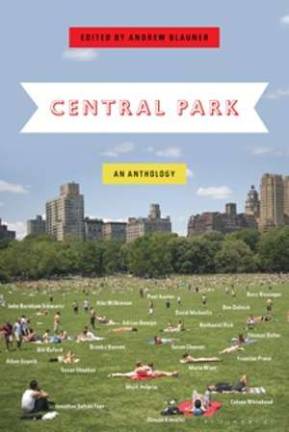Paying Tribute to Central Park

By Alex Mikoulianitch In the new anthology Central Park, edited by Andrew Blauner, the spirit of the uptown oasis is richly captured in 244 pages. Prominent writers such as Paul Auster, Susan Sheehan and Thomas Beller all pay tribute to the greatest city park in the world. Blauner sat down with Our Town to talk about the making of this book and honoring Central Park and its history. Our Town: What sparked the idea to make this book? Andrew Blauner: It's ironic, but it was actually my decision to move out of New York. I grew up in Manhattan and lived very close to the park and always cherished and treasured it. I started getting these pangs of withdrawal and of what it would be like to not have the park as basically my back yard. The more I thought about it, as present and prominent as it is, it struck me that Central Park was to some extent under-appreciated. There had never been a book like this. There have been essays and parts of people's memoirs and short stories and that sort of thing. But, I felt this was an opportunity to celebrate the place that I loved and that meant so much to me as a way to give something back. Why did you decide to collect other people's stories? If I were a writer, I imagine that I either would have tried to write a Central Park memoir of my own or certainly include it as a chapter or have it as a thread to run throughout the book. There is a book called Writing New York that Phillip Lopate edited. In the introduction he writes about "why a collection [of stories]," and I think New York is so vast that no one writer's voice could or should try to capture it all. Even if I had the talent and ability to do it, I'd probably be more drawn to kind of curating and putting together the book this way, so that it would be a collection of voices and stories. How did you go about getting all the submissions for the book? You reach out to writers-"I admire your work"-and you enlist or engage somebody to write something. Sometimes a writer will say, "I would love to do it but it depends on what you can pay me or how much time I can have or what specifically you're looking for." But it all amounted to basically having a small group that in one form or another made a commitment, or maybe even wrote a piece speculatively. In this case I think, the same way I was drawn to put this book together born of certain affection and gratitude and admiration for the park, I think that's, in some way, kind of what the writers felt; they relished the opportunity to pay tribute. What was the most difficult part about putting this book together? The least difficult part was the actual editing itself, just because they were all such great writers-it was almost like being the manager of an all-star team. You just have to try not to screw it up, because it was almost like putting the blocks in order. It was more finding the right sequence and rhythm and structure and editing in that sense. The most difficult part was the [publishing process], breaking through the gate and finding the gatekeeper, the publisher, that would see the way clear to take on the project. It was the toughest hurdle to clear. Now that the book is out, is there anything that you would want to change about it if you had a chance to go back to the editing process? Like with almost anything, you always wish you had more time or did some things differently. But if I really break that down, like what really would I have done differently, I don't know in this case if there's anything specific [I would change]. I mean the percentage of people that I approached and who ended up writing for the book was very high but, at the same time, sure I would've loved to have something from, say, Roger Angell and Joan Didion and John McPhee. But when I look at whom we ended up with [?] I wouldn't want to take anyone off this team. I have no regrets, I only have ongoing hopes and inspiration.